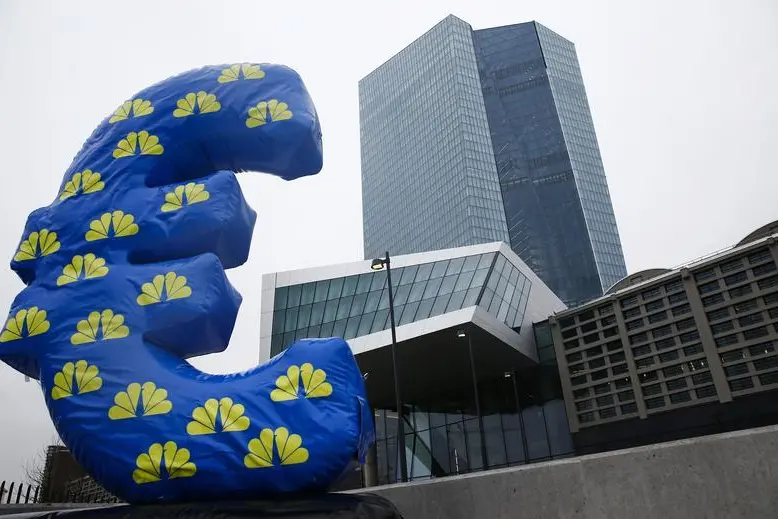PHOTO
(The author is a Reuters Breakingviews columnist. The opinions expressed are his own.)
LONDON - The decision to ban Europe’s banks from paying dividends this year is a strong candidate for the most maligned regulatory edict of recent years. Supervisors stopped payouts in an attempt to preserve capital amid rising loan losses and demand for credit. In the eyes of critics, they ruined the case for investing in an already-battered sector. That argument lacks evidence, however. Share prices may remain low even if restrictions are lifted.
A change of tack seems likely. European Central Bank supervisor Yves Mersch said in a recent interview that the regulator could return to a case-by-case approach to approving payouts in 2021. According to the Times, the Bank of England has been “bartering” a deal under which UK lenders could hand cash to shareholders as long as their capital ratios and lending remained strong. That will please executives and investors, who argue the bans have scared off income-hungry investors.
Yet there’s little evidence that the dividend drought is directly responsible for the average 17% decline in the market value of Europe’s 20 biggest lenders this year. For one, the 10 biggest U.S. banks have lost roughly the same proportion of their market capitalisation, even though American regulators imposed looser restrictions. Second, banks have merely suspended dividend payments, not cancelled them. That should make little difference to share prices if payouts resume at the same level. Over a period of 20 years, and using a 10% discount rate, a one-year delay lowers the present value of a steady dividend stream by a modest 1%.
The roots of the malaise instead lie in dwindling profit expectations. The decline in European banks’ market values this year correlates closely with downgrades to forecasts for 2022 pre-tax profit since Jan. 1, using the median Refinitiv estimate. Lenders which have seen the sharpest fall in earnings expectations, like HSBC, Société Générale and Standard Chartered, have also suffered the biggest share-price declines. The opposite is true for Deutsche Bank, Swedbank and SEB, whose market worth has risen this year, along with earnings forecasts.
The implication is that investors are actually more worried about the impact of low interest rates and rising loan defaults. Those factors look set to depress bank earnings long after regulators lift their bans. Executives will need someone new to blame for their woes.
CONTEXT NEWS
- It will be difficult for the European Central Bank to maintain a dividend ban on lenders beyond 2020, Yves Mersch told the Financial Times in an interview published on Nov. 25. The vice chair of the ECB’s supervisory board said: “We have only an enforcement instrument in our regulation based on a case-by-case approach”.
- Mersch noted that supervisors in other jurisdictions seem to be moving towards a more selective policy, rather than blanket dividend bans. The Times reported on Oct. 26 that regulators at the Bank of England were “bartering” a deal with lenders, under which they may be allowed to return cash to shareholders as long as their capital ratios remain strong and they increase lending.
(The author is a Reuters Breakingviews columnist. The opinions expressed are his own.)
(Editing by Peter Thal Larsen and Karen Kwok. Graphic by Vincent Flaaseur.) ((liam.proud@thomsonreuters.com; Reuters Messaging: liam.ward-proud.thomsonreuters.com@reuters.net))





















